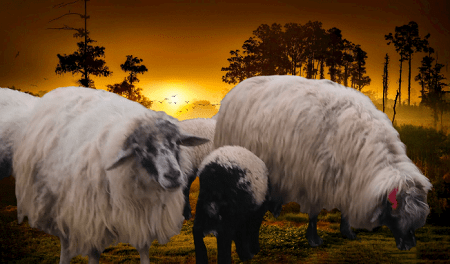Is it legal to own a sheep in California?
It is generally legal to own sheep in California. However, specific regulations and restrictions may vary depending on the location (county or city) within the state. Agricultural laws and zoning ordinances may dictate where and how many sheep can be kept in residential areas or on agricultural land.
If you are considering owning sheep in California, it is essential to research and understand the local laws and regulations related to livestock ownership in your specific area. This information can typically be obtained from your local government or agricultural extension office.
Additionally, please note that regulations and laws can change over time, so it’s a good idea to check for any updated or new regulations related to sheep ownership in California if you plan to acquire or keep sheep in the state.
Can you have sheep in California?
Yes, you can have sheep in California. Sheep farming and husbandry are common agricultural practices in California, and there are many sheep farms and ranches across the state.

However, as mentioned earlier, specific regulations and restrictions may apply depending on the location (county or city) within California. Agricultural laws, zoning ordinances, and land-use regulations may dictate where and how many sheep can be kept, especially in residential areas or urban environments.
If you are considering owning sheep in California, it’s important to familiarize yourself with the local laws and regulations related to livestock ownership in your specific area. You can obtain this information from your local government offices, agricultural extension services, or animal control authorities.
Additionally, it’s essential to ensure that you have adequate space, proper facilities, and knowledge of sheep husbandry to provide for the welfare and well-being of the animals. Responsible sheep ownership requires proper care, feeding, shelter, and attention to their health and safety.
As with any agricultural or animal husbandry practices, it’s crucial to comply with all relevant laws and regulations to ensure both the welfare of the animals and compliance with local ordinances.
When do sheep give birth in California?
Sheep breeding and lambing practices in California, as in other regions, can vary based on the specific management and production goals of individual sheep farmers. However, the typical breeding season for sheep, also known as the “rut” or “mating season,” often occurs in the fall or early winter to ensure that lambs are born during the spring when there is usually ample forage available.
In California, the breeding season for sheep may start as early as August or September and continue through November or December. The gestation period for sheep, which is the time between conception and giving birth, is approximately 145 to 155 days, or around 4 to 5 months.
Considering this gestation period, most lambs are born in the spring months, between February and April, when the weather is milder, and there is an abundance of fresh vegetation for the ewes (female sheep) to graze on, which is essential for proper lactation and the growth of the newborn lambs.
It’s important to note that specific breeding and lambing practices can vary among different sheep farmers in California, depending on their management practices, goals, and environmental factors. Farmers often consider factors such as breed characteristics, market demands, and climate conditions when planning their breeding and lambing schedules. Where to buy sheep in California? >>
Are there sheep in California?
Yes, there are sheep in California. Sheep farming and husbandry are common agricultural practices in the state. California has a significant sheep industry, with many sheep farms and ranches located throughout the state.
Sheep are raised for various purposes in California, including:
- Wool Production: Sheep are raised for their wool, which is sheared from their fleece and used to produce a variety of woolen products such as clothing, blankets, and yarn.
- Meat Production: Sheep farming also involves raising sheep for meat production. Lamb meat is a popular choice, and sheep meat (mutton) is also consumed.
- Grazing and Land Management: In some areas, sheep are used for grazing to manage vegetation and control invasive plant species.
The sheep industry in California contributes to the state’s agricultural economy and provides various products for both domestic and international markets. Additionally, sheep farming plays a role in land stewardship and sustainable agriculture practices in the state.
While sheep farming is prevalent in California, the scale and focus of sheep operations can vary. Some sheep farms are small family-owned enterprises, while others are larger commercial operations. The type of sheep breeds raised may also vary depending on the specific purpose of the farm, market demands, and regional climate conditions. Do they have sheep in California? >>





